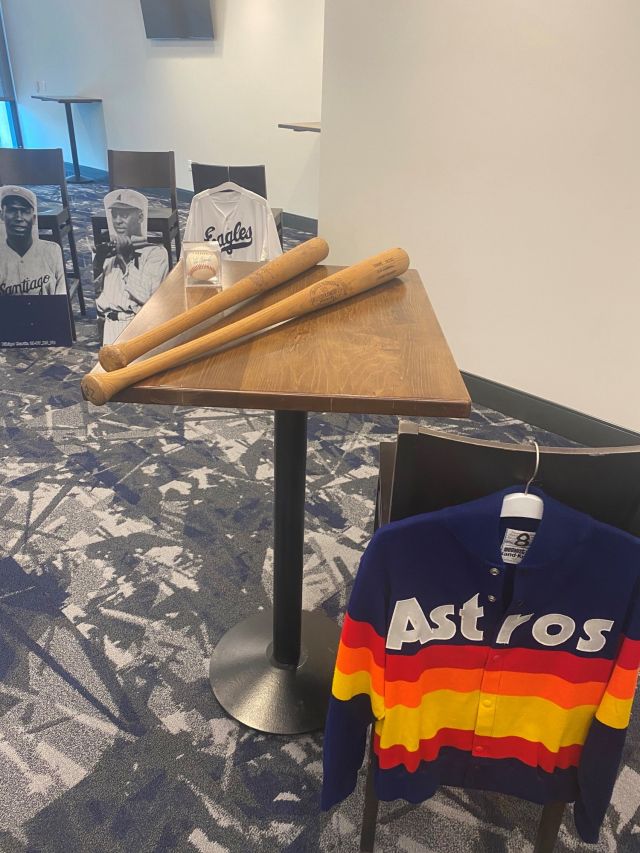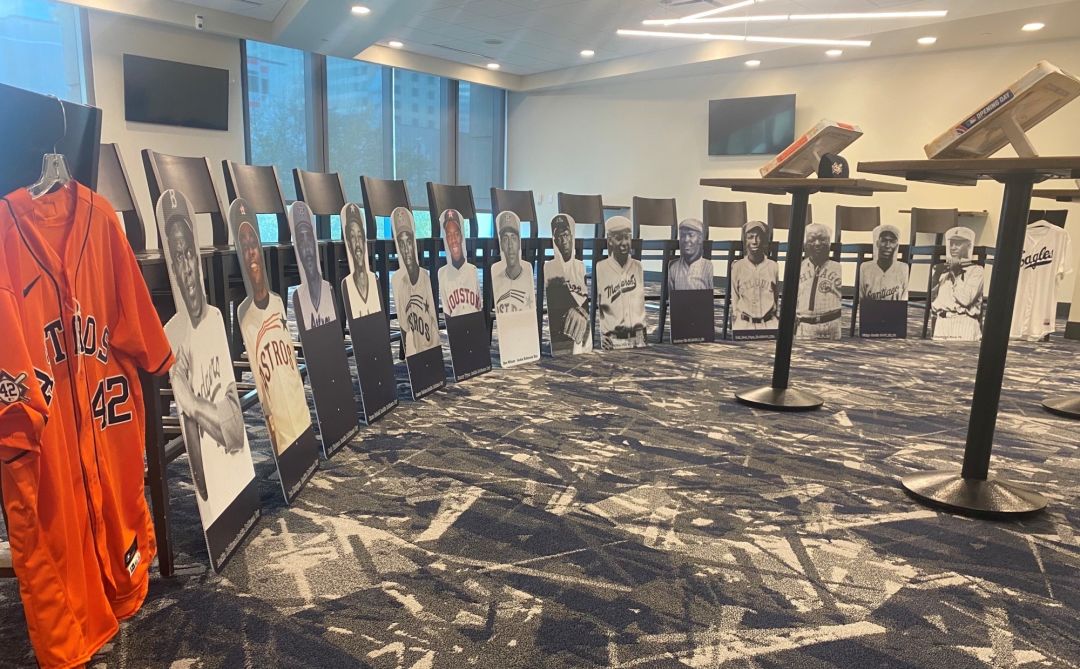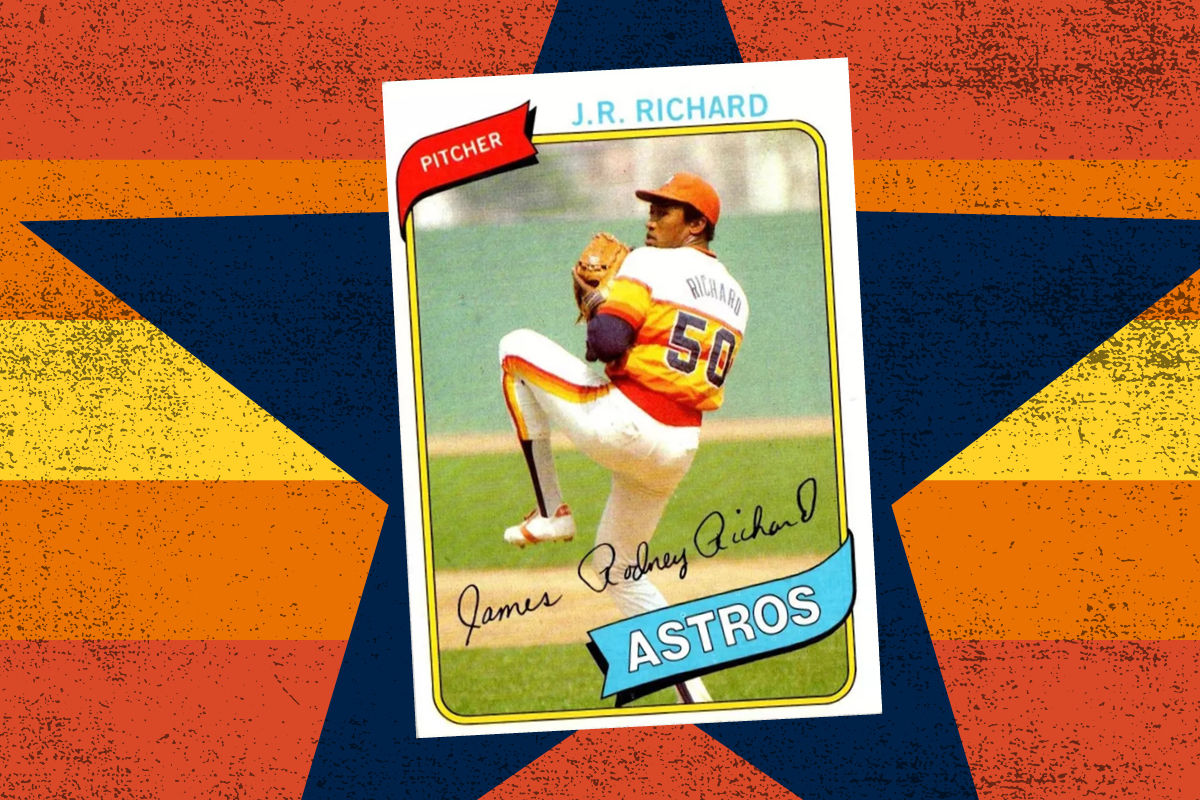Learn the History of African American Baseball Through This Tour at Minute Maid Park

Image: Courtesy of Chris Rawls
Did Jackie Robinson really take his first swings in professional baseball in Houston? Was Satchel Paige actually the first person to pitch inside the Astrodome? How did the Colt .45s spur integration in the Bayou City? Learn all that and more on the new African American History Tour at Minute Maid Park.
Astros Ballpark Tour Coordinator Chris Rawls says his department first began developing this tour last year in honor of the 100th anniversary of the Negro National League, which was founded on February 13, 1920, by Baseball Hall of Famer (and Texan) Andrew “Rube” Foster. But like everything else in 2020, those plans were struck out by the pandemic.
Now they’re back at bat, right in time for Black History Month. “We cover Black history in the Houston area, as it relates to baseball, going back to the 1860s,” he says.
The tour starts way back with the first known Black baseball team in Houston, and then walks visitors around Minute Maid Park and through history. It highlights developments in the sport, including segregation and the advent of the color line in the late 1800s; the growth of Negro leagues; the integration of the major leagues; and, of course, the legendary players.

Some of the artifacts on the tour come from Rawls's personal memorabilia collection, like a bat signed by the entire 1971 team, which included all six African American players in the Astros Hall of Fame.
Image: Chris Rawls
Legends like Jackie Robinson, who, before he broke the color line for the Dodgers, tried out for the Kansas City Monarchs, one of the most successful teams in the Negro National League, while the team was doing its training in Houston. Or Satchel Paige, one of baseball’s greatest pitchers, who, in his late 50s, was asked to pitch off the mound of the Astrodome, two months before its grand opening, to test the windless conditions of the indoor stadium.
But, says Rawls, the emphasis of the tour is on baseball’s local legacy. “I think the story is the most important part of the tour,” he says, “because most people don’t know about Black baseball in Houston.”
Folks will learn about Negro league teams in the Bayou City, like the short-lived Houston Eagles and the Black Buffs, which, Rawls says, was such a popular team to root for that both white and black newspapers at the time covered them.
The tour also discusses how the Astros lead the move to integration in Houston. “We didn’t get a major league team until 1962,” says Rawls, when the Colt .45s (now the Astros) played their first season in Houston, which was still segregated at the time. But since integrated major league teams were now coming to play in Houston—the city didn’t want Willie Mays to have to sleep in a separate hotel, says Rawls—business leaders quietly negotiated the integration of hotels and restaurants on April 1, 1965.
“It didn’t even make the news,” Rawls says. “It was just one day, March 31st we were segregated, April the 1st we weren’t.”
The entire tour takes a little more than an hour. It’s on offer every Saturday this February for Black History Month, but, Rawls says, they will host it at least once a month from here on out.

Learn about some of baseball's greatest players on the African American History tour at Minute Maid Park.
Image: Chris Rawls
Because we’re still living in Covid-19 times, visitors are required to fill out a health screening before the tour, which will have no more than 10 people at a time, begins. There are temperature checks, and face masks are required. This should be a given, but no touching of artifacts is allowed.
Tickets are $25 a person and can be bought online or in person at Union Station. There are some other cool tours, too, says Rawls, like the ghost tour, but he says it’s important to learn the history of African American baseball in Houston because it’s Houston’s history.
“You don’t want to forget the sacrifices and the struggles that people had,” he says, “and the great achievements that came from that as well.”




